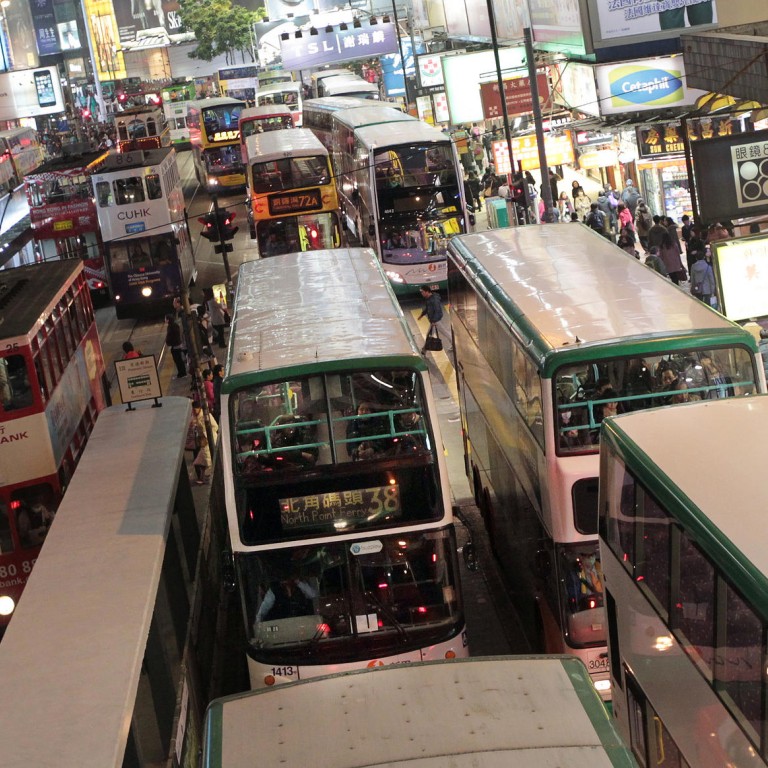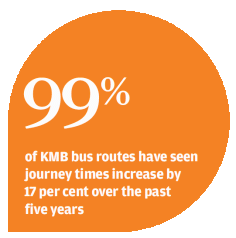
Bus operator calls for priority lanes as 'private cars are clogging up the roads'
Operator seeks bus lanes and right of way as it blames rise in private cars for congestion that has increased journey times by up to 30pc
The largest franchised bus operator is calling for new road rules to give its vehicles priority, saying excessive private car growth is causing congestion that has increased its journey times by up to 30 per cent.

"It is now everywhere … not just the busy urban corridors, but even far away like Yuen Long, where congestion is a daily norm," KMB corporate affairs director Vivian Chan Pik-kwan said.
Changes sought by the company, which now runs 3,800 buses, include more bus lanes and rules that require private vehicles to give way at bus stops.
Chan said the number of licensed private cars had risen from 370,000 to more than 470,000 in the past five years, while the number of KMB buses had dropped from more than 4,000.
In the same period, journey times on 99 per cent of its routes had increased by an average of 17 per cent. The biggest increase was 30 per cent, but Chan did not name the route.
She said congestion on Nathan Road, in Tsim Sha Tsui, alone affected up to 800,000 commuters a day.
"I am not saying all [the extra] cars are running on the road on a daily basis, but even if 3 to 5 per cent of them do so, it can still have a serious impact on us," she said.
But a member of the Hong Kong Automobile Association questioned whether private cars were being used as a scapegoat for companies that failed to operate efficiently and make profits.
"The fact is that that bus operators are now facing heavy competition from the mass transit systems and they have not done enough to reverse the trend," said Ringo Lee Yiu-pui.
Chan also said KMB, with 70 per cent of its 400 routes making a loss, hoped to rationalise its routes by merging or cutting under-patronised services.
KMB had recently reorganised its routes in North District and would do so in four more districts later this year, she said, but progress had not been satisfactory.
"No matter how far we go in rationalisation, the benefits it delivers will not materialise if there is serious congestion on the roads," she said.
A spokesman for the Transport Department said it had been in talks with KMB to devise traffic management measures so that the firm could provide efficient services.
Aggravating the problem were construction projects that left less and less space on the road for vehicles, Chan said.
She cited work connected with construction of the cross-border express railway near Austin Road in Tsim Sha Tsui and of the Sha Tin-Central MTR link, which has blocked three of six traffic lanes along part of Ma Tau Wai Road in Ngau Tau Kok.
KMB is seeking a 4.3 per cent fare increase, even though it raised fares by 4.9 per cent last year. Its daily patronage has dropped from 3.1 million in 2002 to 2.6 million.
Meanwhile, the company is in talks with the Environmental Protection Department over sites to house charging facilities for eight electric buses it plans to introduce by the end of this year.
The single-deck buses, using mainland-developed "super-capacitor" technology that enables them to be charged en route, will run a five-kilometre service between Ping Shek and Eastern Road near the old Kai Tak airport.
